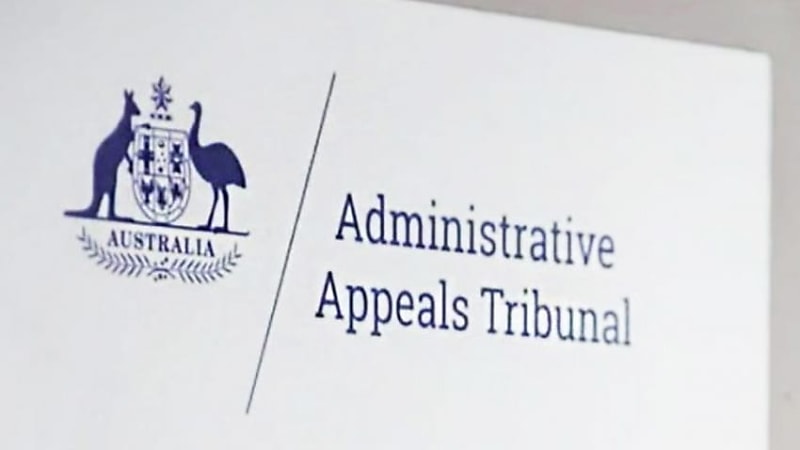SMSF auditor refused stay of disqualification decision
The Tribunal has refused an SMSF auditor’s application to stay a disqualification decision, pending an appeal.
In recent decision, the Administration Appeals Tribunal has refused a stay application by an SMSF auditor who was disqualified by ASIC in April 2022.
According to the evidence provided, ASIC’s disqualification decision was principally, though not exclusively, based on criticism of the auditor’s conduct in relation to the audit of three SMSFs.
In June 2022, the auditor lodged a review application with the Tribunal. He sought an extension of time and a stay of his disqualification decision.
While ASIC did not dispute the appropriateness of extending time to regularise his review application, it opposed any stay of its disqualification decision.
The auditor was referred to ASIC by the ATO in December 2020. This followed a compliance review by the ATO in the latter part of 2019 of three superannuation audits that he had undertaken.
The review process involved a meeting with the ATO and the presentation of a position paper in which the ATO outlined its various concerns.
The auditor provided the ATO with additional audit-related documents and information.
The stated reason for the referral to ASIC was the ATO’s opinion that the auditor had not performed adequate SMSF audits and had contravened superannuation laws.
In its statement of reasons issued in February 2022, ASIC’s criticism’s included his failure to comply with certain audit requirements including undertaking professional development activities, maintaining professional indemnity insurance and providing an audit report in the approved form.
ASIC also claimed that he had failed to comply with applicable Australian auditing and assurance standards concerning the planning and documentation of the audit.
The corporate regulator also found that he had failed some ultimate audit conclusion requirements, particularly the obligation to report SIS Act contraventions, most specifically in relation to statutory requirements concerning SMSF asset composition, and SMSF borrowings.
The auditor submitted that his ill health had prevented him from providing a full response to ASIC’s concerns. He also stated that the irregularities relied on by ASIC, concerning only three SMSF audit clients, were aberrant, and did not in any event warrant disqualification.
He contended that granting a stay of the disqualification decision would involve no significant public risk, whereas allowing the disqualification decision to continue to operate, pending the outcome of his substantive review application, would involve a significant financial hardship.
He relied on the following propositions to support his contentions:
(a) He was able to provide additional information, not considered by ASIC (or the ATO) that would be conducive to a favourable review outcome
(b) ASIC’s criticisms did not involve any allegation of dishonesty or intentional misconduct
(c) He has an exemplary record as a company auditor (since about July 1991) and as an approved SMSF auditor (since August 2013)
(d) ASIC’s criticisms do not relate to current conduct, involve matters that occurred in tax years prior to the year ended June 2019, and have been substantially addressed by subsequent procedural reforms.
Administrative Appeals Tribunal senior member Peter Taylor stated that the auditor had not provided an explanation for some aspects of the conduct underlying ASIC’s criticisms including:
(a) The absence of audit file confirmation of enquiries sufficient to establish the SMSF eligibility of the three audited funds
(b) The failure to obtain trustee representation letters or signed financial statements for the three’s
(c) The failure to provide an audit report in the approved form
(d) The failure to obtain (or at least document) market valuations
(e) The failure to obtain the investment strategy of each SMSF
(f) The failure to obtain (or at least to record examination of) the SMSF minutes.
“Against the background of the substance of ASIC’s criticisms, the concessions that are implicit in [the auditor’s] (to date) limited responses, and the absence, in the presently available material, of any substance response to ASIC’s criticisms, [his] stay application relies on insubstantial and unpersuasive grounds,” said Mr Taylor.
“There is a very significant public interest underlying the SIS Act SMSF audit requirements. In the light of those requirements, [the auditor’s] financial interests in securing a stay of the disqualification decision, his reputational interests and the interests of his audit clients, do not conduce to satisfaction that a stay of the disqualification decision is 'desirable'.”
“Even if it were reasonable to regard those interests as substantial, the period that has elapsed since the February 2020 decision, as well as the imminence of the substantive hearing, tend against satisfaction that any stay of the decision is 'desirable'. The same conclusion applies in relation to [his] reputational interest.
Mr Taylor stated that the decision to refuse the stay of the disqualification decision expresses no concluded opinion on either the justification for ASIC’s criticisms or the appropriate evaluation of those criticisms.
“If the review proceedings result in a favourable outcome to [the auditor], his reputational interests will be sufficiently protected. So far as his audit clients are concerned, I consider their interests should currently be best protected by ensuring that any audit should be undertaken by an auditor who is currently entitled to registration, and not subject to the adverse findings ASIC has made against [this auditor],” he stated.

Miranda Brownlee
Miranda Brownlee is the deputy editor of SMSF Adviser, which is the leading source of news, strategy and educational content for professionals working in the SMSF sector.
Since joining the team in 2014, Miranda has been responsible for breaking some of the biggest superannuation stories in Australia, and has reported extensively on technical strategy and legislative updates.
Miranda also has broad business and financial services reporting experience, having written for titles including Investor Daily, ifa and Accountants Daily.








